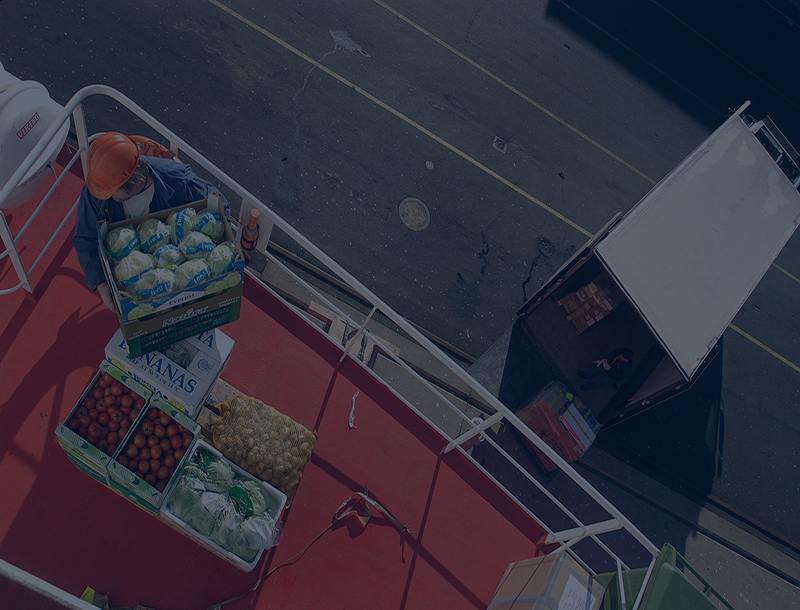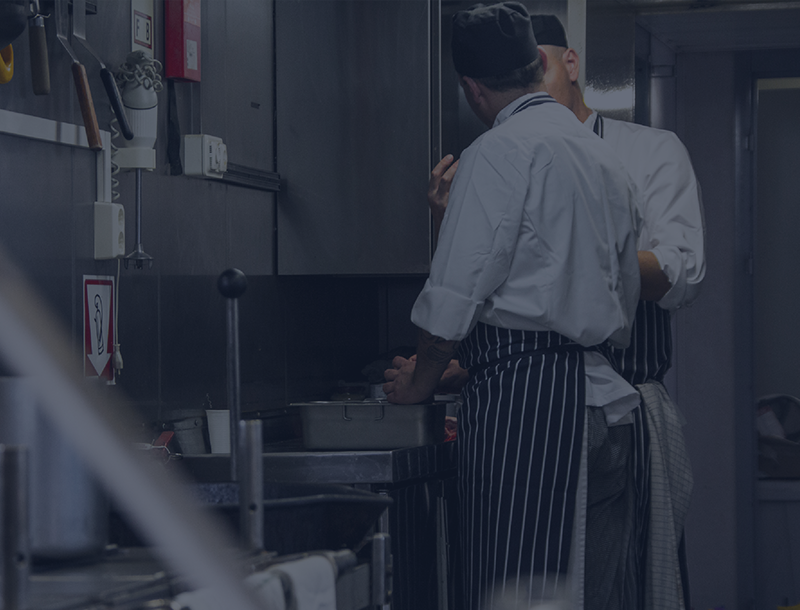Home > News & Information > News > Garrets Leads the Way in Driving Food Sustainability at Sea
Date: 30 September 2025
Supporting maritime businesses in shaping a responsible future for on-board food management to meet climate goals and improve crew wellbeing.
This September, Garrets has proudly launched an industry-first, intensive training course for valued customers under the theme “Driving Food Sustainability at Sea – A Training Programme for Leading Maritime Businesses.”
Held in partnership with MAD, a renowned thought leader on food sustainability, the programme was designed to empower maritime businesses to make meaningful progress towards reducing the CO2 footprint of food on board vessels – without compromising nutrition, variety, taste, or crew satisfaction.
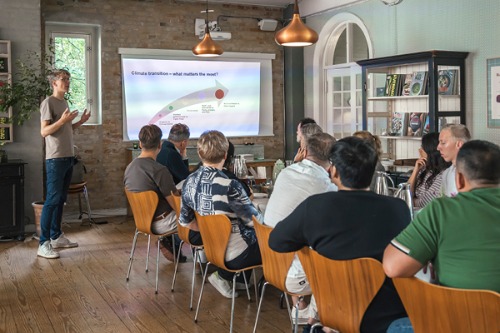
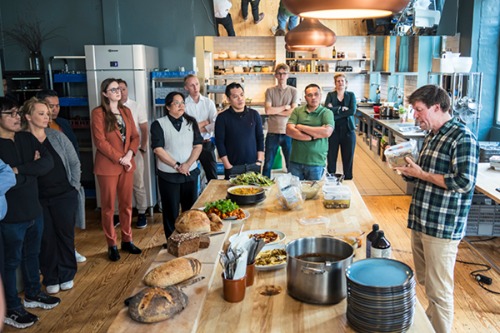
Shipping companies are increasingly expected to comply with regulations on CO2 emissions, waste management and supply chain transparency. However, despite strong ambitions to adopt more sustainable food practices while ensuring crew well-being through healthy, balanced diets, many companies struggle to translate sustainability goals into daily practices on board. Lack of knowledge, operational complexity and limited tools for measurement and reporting are some of the factors that make it hard to keep up motivation and engagement, turning sustainability into an abstract ambition that is often deprioritised to everyday operational demands.
"Sustainability should be accessible, actionable, and rewarding," says Hamish Cook, Managing Director at Garrets International. "With MAD’s expertise and our deep knowledge of maritime catering, this training bridges the gap between ambition and practical execution."
With food representing a significant part of a vessel’s impact on carbon footprint, on-board food management proves as a powerful lever for change.
Through the 2-day intensive training, Garrets’ customers were equipped with the knowledge, tools and strategies needed to integrate sustainable food practices into daily operations on board, focusing on reducing climate impact and meeting goals while maximising choices, flavours and nutrition for the crew.
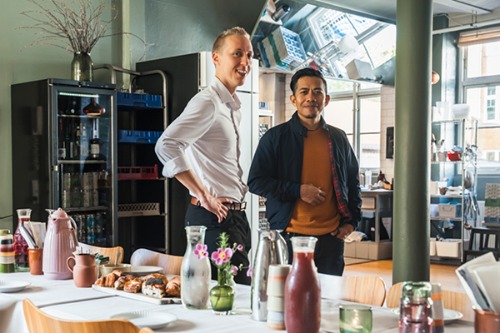
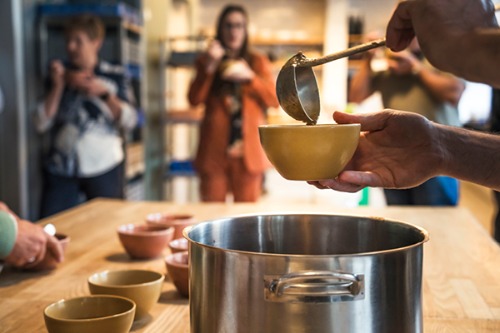
For many participants, the training course was an eye-opening experience, shifting sustainability from an abstract ambition into clear understanding and practical, achievable steps.
Especially, discovering the impact of red meat, a significant contributor on the CO2 emissions score, sparked surprise and reflections among the participants. In a tasting session, MAD demonstrated alternative ingredient choices for participants to see and savour how meat-free meals could be both be tasty and fulfilling at the same time.
“These two days offered a thorough exploration of our footprint on the planet and how our choices affect it – and truly demonstrated how small changes to meals can maintain high nutritional quality, great taste, and an appealing presentation” says Kirsten Sunnenå, Catering Manager at Solstad.
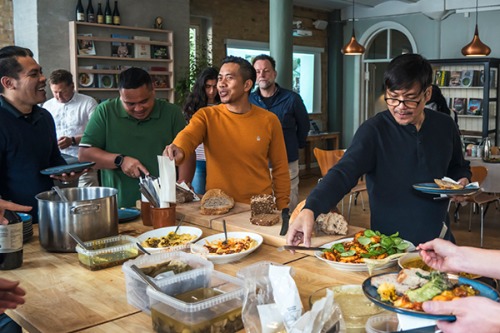
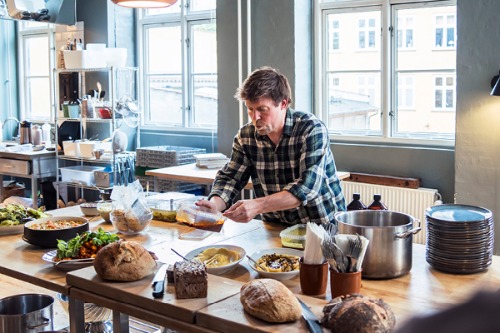
The training also highlighted creative approaches to reducing food waste, showing how smarter menu planning and a ‘clean plate’ approach can minimise waste and cut unnecessary emissions and still keep crews well-fed and satisfied.
“Delivering this training to seafarers for the first time highlighted the remarkable potential for vessels to adopt sustainable strategies through delicious food” says Ed Romein, Research & Teaching Lead Sustainability at MAD. “Watching their apprehensions disappear, being replaced by belief that they can influence climate impact and contribute to the positive change on board was a powerful outcome.”
Filled with confidence to act and inspire colleagues and crewmembers, conversations among participants highlighted an important necessity: Success requires commitment, and sustainable practices can only take root when leadership and crewmembers all work together, creating a shared culture where every choice contributes to minimising impact.
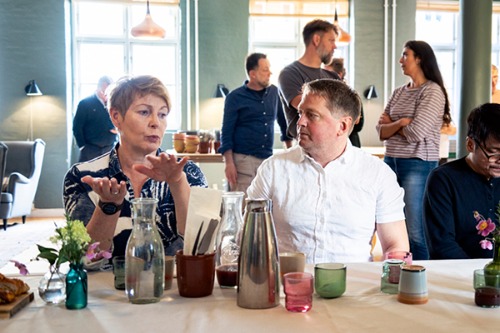

“The Food Sustainability at Sea course shows the values of sustainability food practice and that we all have a responsibility as conveyors of food and culinary knowledge” says Magnar Fimreite, Catering Superintendent, DOF Management. He continues: “Our culinary ethos, food, is our craft and our calling. Every meal should excite, nourish, and reflect our values – cook with care and collaborate to prevent waste.”
“These two days gave me more knowledge, understanding, and inspiration to start a project where we take responsibility to reduce the climate impact of our food across our fleet worldwide” says Kirsten Sunnenå, Catering Manager at Solstad, and adds: “Solstad will be in the lead of minimising catering-related CO2 emissions.”
The initiative is a clear signal of Garrets’ commitment to supporting the maritime industry in tackling climate challenges, making sure that food sustainability becomes a reality across its customers’ fleets hand in hand with improved crew well-being.
Reach out to us here.
